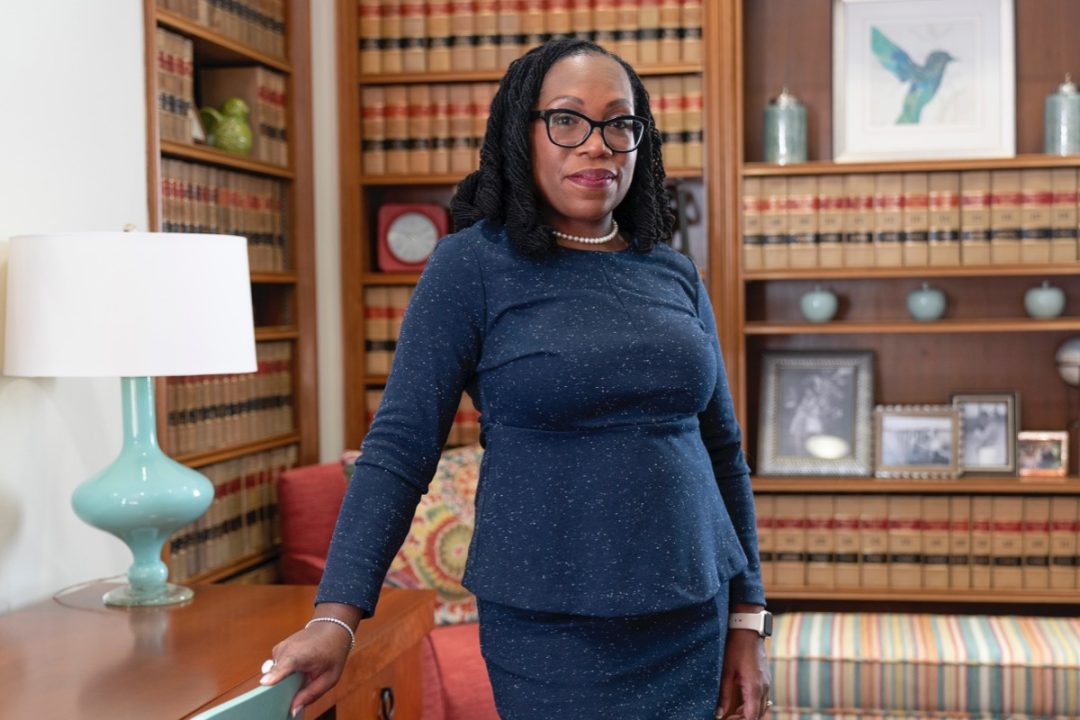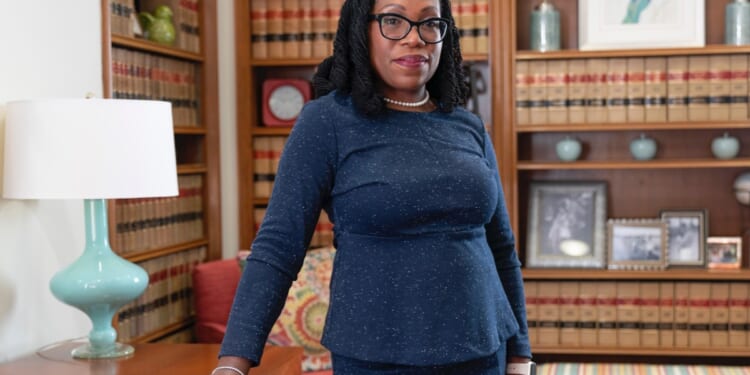
We don’t know if Justice Kentanji Brown Jackson is disabled as a jurist, but she certainly has made it onto the Supreme Court. She apparently, though, believes that black Americans are essentially “disabled” within the context of our American system. In fact, she just said as much Wednesday during oral arguments in the current SCOTUS case of Louisiana v. Callais.
Not surprisingly, Jackson’s argument has brought mockery, with critics calling her reasoning “insane” and “dumb.” In reality, however, she isn’t the first Supreme Court justice to make her disability argument. Even more significantly, the eye-rolling and guffaws can distract from the real, deeper issue. That is, Jackson embraces a flawed premise which, unlike her argument, too many Americans share with her.
The Case
The current SCOTUS case involves the constitutionality of Louisiana’s congressional map. MegynKelly.com provides background:
Louisiana v. Callais centers on a redrawn district in Louisiana and competing court rulings over race-based boundaries. In 2022, Louisiana adopted a congressional map with one majority black district.
Louisiana’s population is about one-third black and the state has six total seats in the U.S. House of Representatives. A group of black voters sued in federal court, arguing the map violated Section 2 of the Voting Rights Act [VRA] that bars election rules or maps that “result in a denial or abridgment of the right of any citizen of the U.S. to vote on account of race or color.”
A federal district court agreed the map likely violated the Voting Rights Act and directed the state to create a new map that included a second majority Black district. Louisiana complied, but, in 2024, that new map faced a legal challenge of its own from a group of non-black voters who argued the additional district amounted to an unconstitutional racial gerrymander. A different U.S. district court agreed with the plaintiffs, ruling that the new map violated the Fourteenth Amendment’s Equal Protection Clause.
Note here that aside from being unconstitutional, the VRA’s Section 2 has led to some bizarre court-mandated outcomes. Notable is the case of Port Chester, New York, a village near where I live. In 2006, it was compelled to adopt a plan giving every resident six votes in its local elections (yes, really). The goal?
To help ensure a Hispanic would be vaulted into the village government. (Click here for more information.)
Jackson’s Argument
As for Jackson, she apparently has no problem with such insanity serving such identity-politics ends. This said, in her Wednesday argument, “no, Jackson did not call black people disabled,” points out the Legal Insurrection blog. “However, Jackson did say that not having race-based districts is like disabled people not being able to access anything before the ADA.” The blog then presents Jackson’s argument:
[My kind] of paradigmatic example of this is something like the ADA. Congress passed the Americans with Disabilities Act against the backdrop of a world that was generally not accessible to people with disabilities, and so it was discriminatory, in effect, because these folks were not able to access these buildings, and it didn’t matter whether the person who built the building or the person who owned the building intended for them to be exclusionary, that’s irrelevant. Congress said the facilities have to be made equally open to people with disabilities, if readily possible.
I guess I don’t understand why that’s not what’s happening here. The idea in section two is that we are responding to current day manifestations of past and present decisions that disadvantage minorities and make it so that they don’t have equal access to the voting system, right? They’re disabled.
Apparently, it’s a disability if, like everyone else, your numerical minority status prevents you from getting the representatives you want. Perhaps as in Port Chester, you should get to cast a half-dozen votes.
Race on the Brain
One could wonder about Jackson’s (and others’) underlying worldview. Is it her belief that you’re entitled to be represented by people who look like you? By your own race? Because nowhere in the Constitution is this guaranteed.
Does Jackson believe you can’t be adequately represented by someone of another race? Would this be due to prejudice, perhaps innate (tribalism)? Is at issue the supposition that blacks and whites just have different priorities and philosophies of governance? Do they just want different things? And does Jackson consider this a permanent fixture of man’s nature, that black is black and white is white and ne’er the twain shall meet?
If all this is so, then does Jackson advocate partitioning the U.S. along racial lines? For if it is the case, then our current “American experiment” is doomed to failure.
Of course, in reality, black and white Americans do vote differently. Approximately 90 percent of the former vote Democratic while whites break Republican. And with blacks constituting 31.4 percent of Louisiana’s population, some believe they “should choose a third of the state’s congressmen.”
But that’s not how it works. If black Americans — or any minority — are dispersed among many districts, they many not be numerous enough in any one district to hold sway. This isn’t called unjust discrimination; it’s called math.
(If this bothers people, they can exercise their freedom of mobility. Black Louisianans can move and try to concentrate their numbers in just a couple of districts. Libertarians, another minority, have essentially attempted this via the Free State Project in New Hampshire.)
The Real Discrimination
To cement the point, consider that a numerically equal white Democratic minority could be likewise dispersed in GOP districts. (This does happen, too.) They wouldn’t get the representation they want. So why should an identically situated black Democratic minority get the representation they want? Because their skin color is different?
Now that’s what you call racial discrimination.
In reality, there are all sorts of incidental disparities in life. For example, approximately 40 percent of the U.S. population is Protestant. But only one of the nine Supreme Court justices, Jackson herself, is Protestant. Should the Court’s representation be equalized?
I know well what being a minority feels like, too. As I often say, I’m an anachronism, best epitomized by “Mayberry Meets the Middle Ages” (MMMA). But I never get a representative whose name is followed by “(MMMA-NY).” That’s life when your numbers don’t match your zeal.
One more point: What would racially gerrymandered Louisiana districts accomplish as a practical matter? There are now, after all, many majority black localities (e.g., Detroit, Baltimore) with monolithically Democratic governments. Are they run so well that we should want to replicate such governance elsewhere? Are these liberal politicians actually helping their black constituents?
Why, the Voting Rights Act’s motto just could be: Bringing you worse government through constitutional trespass for 60 years.











